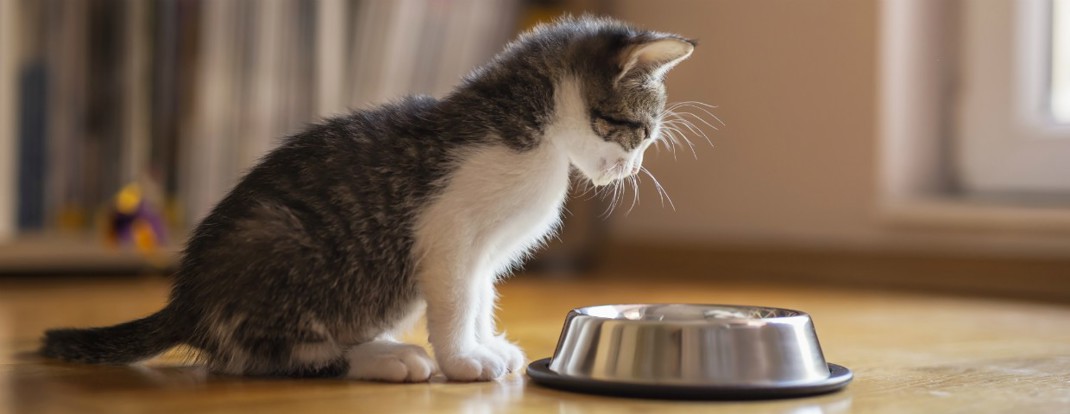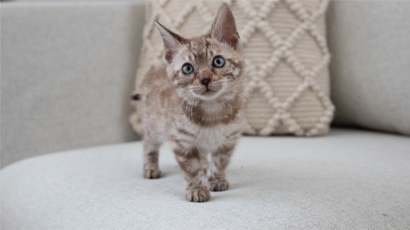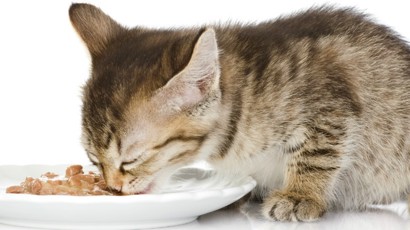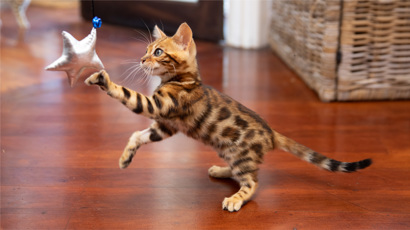Kitten Nutrition Guide

What should 8 week old kittens eat?
Kittens have very specific dietary requirements and it’s important that we take these needs into account to ensure your kitten will thrive and become a health adult cat.
When a new kitten arrives for a veterinary health assessment, one of the first questions I ask their parent is “What are you feeding your kitten?”.
As cats have specific dietary requirements, it is safest to feed a diet that has been formulated using the guidelines set by the Association of American Food Control Officials (AAFCO). Feeding your kitten a home-made diet can be risky, as it may be deficient in essential nutrients1.
The Black Hawk kitten food range has the correct balance of nutrients, which means nothing else needs to be supplemented – their vets and nutritionists have already done the hard work for you. So easy!
Obligate carnivores
Cats are known as obligate carnivores, which means their diet should contain animal-based proteins to ensure a complete diet. Black Hawk’s policy of ensuring meat as the first ingredient in all their diets means your cat’s food bowl is in safe hands. It’s best not to take any risks during this critical point in their development. For this reason, I advise owners to avoid plant-based protein diets for growing kittens due to the risk of not meeting their specific nutritional needs.
Is wet or dry food best for my kitten?
Weaning kittens from their mother’s milk to eating solids usually starts between 4-5 weeks of age (but this can vary). During this time, it’s a good idea to slowly introduce both wet kitten food and dry food, but most very young kittens will initially prefer the wet food mixed with some milk replacer or warm water, to create a thick liquid. Over 5-7 days, the kittens will learn how to properly pick up the food with their mouths, as opposed to ‘slurping’ the food as though they are still suckling. Once you see this happening, there is no need to continue to add water or milk replacer to the wet food, and dry food can also be introduced.
From 6 weeks of age (or earlier), I generally encourage kittens to eat some kitten-specific dry food as well as the wet, allowing the kitten to access this ad lib.
This helps kittens learn how to chew and use their teeth properly, which improves dental hygiene later in life. Generally, cats like to ‘graze’ as opposed to have specific meal times, and in fact, in the wild, cat eat 10-20 small meals per day! So while in the growth phase of life, I like to allow kittens this opportunity to come and snack as they please.
My preference is to recommend a combination of both wet and dry Black Hawk kitten food ensure a complete kitten diet right from 6 weeks to 12 months of age. Black Hawk have wet food pouches and dry food specifically formulated for kitten. Easy to follow daily feeding guidelines are available here on the Black Hawk website and on their packaging.
Three key points to consider when choosing the best kitten food
- Choose high protein over high volume
High quality protein is vital for cats and the AAFCO recommendation is at least 30% crude protein on a dry matter basis. Black Hawk’s easily meets this standard with the crude protein level for their kitten kibble at 34% (minimum) of dry matter.
- Ensure adequate, high quality fat content
Cats require high quality fat content in their diet, which produces optimal growth rates, greater energy supply and tastier food. Good quality fats also ensure essential fatty acids are in adequate supply. The AAFCO recommends a minimum of 9% on a dry matter basis but Black Hawk goes above and beyond this level, with a crude fat level of 18% (minimum) of dry matter.
- Ensure adequate taurine is present
Taurine deficiency can become a serious problem if cats are not fed a balanced diet. This can lead to blindness, reproductive failure (in breeding queens) and heart failure (dilated cardiomyopathy). These diseases are completely preventable if taurine is adequate in their meals. The AAFCO recommends a taurine level of at least 0.1% in dry food. Black Hawk has extremely healthy taurine levels of 0.2% (minimum) in their dry kitten food range, so taurine deficiency is completely avoided.
Feline nutrition is distinct from all other species, which means that a kitten’s diet needs to be carefully formulated, so there is a smooth and safe transition from kitten-hood to cat-hood.
Black Hawk has ensured that these special dietary needs are taken into account so that you can focus on the important things in life – having fun and watching your kitten learn and grow!
References:
- Wilson SA, Villaverde C, Fascetti AJ, Larsen JA. Evaluation of the nutritional adequacy of recipes for home-prepared maintenance diets for cats. J Am Vet Med Assoc. 2019;254(10):1172-1179.
- AAFCO – Association of American Feed Control Officials (AAFCO)



